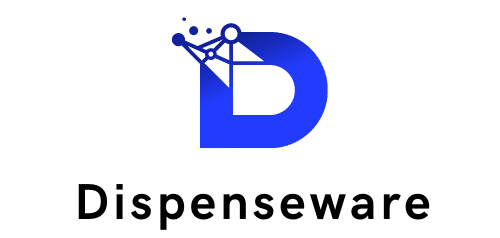Greetings, dear readers! In today’s feature, we invite you to journey with us through a captivating exploration of the intersection between sports, culture, and health in indigenous communities. In this intriguing journey, we will delve into the significant role that traditional games and physical activities play in indigenous healing practices in Canada and beyond. So, fasten your seatbelts, and prepare for a compelling journey brimming with cultural richness, community spirit, and the power of traditional healing.
The Interplay between Culture, Sports, and Healing in Indigenous Communities
The correlation between culture, sports, and healing in indigenous communities is nothing short of exceptional. Traditional indigenous games and physical activities are not only sources of entertainment but also potent tools for facilitating community bonding, promoting health, and invoking healing.
Dans le meme genre : What are the physical and psychological benefits of sports for senior citizens?
Sports activities among aboriginal people are deeply rooted in their cultural practices, and they play a crucial role in the well-being of these communities. They serve as channels for teaching the youth important life skills, values, and norms of their societies. More so, they present excellent platforms for socializing and fostering unity among community members.
Beyond their social and cultural significance, indigenous sports activities also have therapeutic value. They are often incorporated into healing rituals to promote physical health and psychological wellness. Such rituals often involve the community’s participation, reflecting the collective responsibility indigenous communities bear for the health and well-being of their members.
A lire aussi : How do sports broadcasters use augmented reality to enhance in-game analysis and commentary?
The Cultural Context of Indigenous Sports and Games
When you look at traditional sports and games in indigenous cultures, you can’t help but admire the intricate blend of entertainment, physical activity, and cultural education. Children and youth are introduced to these games at an early age as part of their initiation into the community’s cultural practices.
For instance, the Inuit community in Canada has a traditional game known as ‘Aqajarutaq,’ also known as the ‘kneel jump.’ This game tests strength, agility, and endurance, qualities highly appreciated in the harsh Arctic environment where the Inuit people live. Notably, such games are not just about physical prowess but also about cultural identity.
Furthermore, these traditional sports often involve elaborate rituals that underline their cultural significance. They are not just games, they are cultural practices that connect indigenous people to their history, their ancestors, and their land.
Harnessing the Therapeutic Power of Traditional Indigenous Games
A closer look at the traditional indigenous games reveals their potential for health promotion and healing. These games often involve physical exertion, which is beneficial for cardiovascular health, muscle strengthening, and overall fitness. But there’s more to the healing power of these traditional games than just physical health benefits.
The indigenous games are a form of therapy as they foster mental well-being. They provide a sense of belonging and offer a platform for emotional expression, which is crucial for psychological health. This therapeutic potential of indigenous games is particularly relevant for the youth, who may be grappling with identity issues, social pressures, and mental health challenges.
Moreover, the healing rituals in which these sports are incorporated often involve holistic approaches to health. These rituals may include prayers, use of medicinal plants, and spiritual ceremonies, all aimed at promoting healing and wellness.
The Role of Sports in Traditional Indigenous Healing Rituals
Sports take center stage in many traditional indigenous healing rituals. These rituals, deeply rooted in aboriginal culture, serve as an avenue to restore balance and harmony within the individual and the community. They view health and healing from a holistic perspective, often integrating physical, mental, emotional, and spiritual aspects.
In many indigenous cultures, healing rituals involve music, dance, storytelling, and traditional games. These rituals often carry specific intentions, such as healing from illness, warding off evil spirits, or invoking blessings from ancestral spirits. Sports and physical activities become tools through which these intentions are manifested.
For example, in some indigenous communities in Canada, lacrosse is much more than a sport. It is considered a “Medicine Game” that has the power to heal and resolve community conflicts. Playing the game invokes the power of the creator to bring healing and peace.
Reclaiming Indigenous Health and Wellness through Sports
In modern times, indigenous communities are increasingly turning to their traditional sports and physical activities as part of efforts to reclaim their health and wellness. This shift seeks to address health disparities often experienced by these communities by harnessing the therapeutic power of their traditional games and healing rituals.
Sports, in this context, serve as a culturally appropriate way to address health issues. They not only promote physical health but also foster mental wellness and community solidarity – key factors in holistic health and healing. Also, they provide a platform for engaging youth in cultural preservation, thus nurturing the next generation of cultural custodians.
Importantly, the integration of traditional sports into health promotion efforts underscores the vital link between culture, health, and healing. It emphasizes that health is not just an individual concern, but a collective responsibility that calls for communal engagement and cultural continuity.
In conclusion, sports in indigenous cultures are more than just games. They are deeply ingrained in the fabric of these societies, serving as vehicles of cultural transmission, community bonding, health promotion, and healing. Now as we’ve shared this exciting journey, it’s clear that the cultural significance of sports in traditional indigenous healing rituals is profound and invaluable.
Impact of Sports on Mental Health in Indigenous Communities
Traditional healers and scholars from around the globe have increasingly recognized the role of sports in addressing mental health issues among indigenous youth. Indigenous peoples, particularly the youth, often face numerous socio-economic challenges, including poverty, discrimination, and cultural alienation, which can lead to mental health issues such as anxiety and depression.
Sports and games, deeply implanted in indigenous cultures, have emerged as effective tools for addressing these mental health issues. They serve as a form of therapy providing a platform for emotional expression and fostering a sense of belonging. These physical activities offer indigenous youth an avenue to manage stress, boost their mood, improve their self-esteem, and enhance cognitive function.
In North America, for example, the Native American community has embraced lacrosse, a traditional game, as a therapeutic tool. In this context, lacrosse is not just a sport; it is commonly referred to as the “Medicine Game.” Playing the game is believed to invoke the power of the creator to bring healing, peace, and resolution to community conflicts.
Moreover, traditional sports and games also provide a platform for indigenous communities to engage their youth in cultural practices. This engagement is crucial in ensuring the continuity of these communities’ cultural practices, thus creating a sense of identity and belonging among the youth.
Integrating Traditional Sports into Health Care Practices
In the face of health disparities often experienced by indigenous communities, integrating traditional games into health care practices has emerged as a culturally appropriate approach. This integration is increasingly being recognized as not just beneficial, but vital to the health and wellness of these communities.
For instance, a systematic review of health care practices among indigenous communities would reveal the use of traditional games as a means of promoting physical activity and preventing diseases such as diabetes and heart disease. These games often involve physical exertion, beneficial for cardiovascular health, muscle strengthening, and overall fitness.
Besides, traditional healers often incorporate these sports into healing rituals, which involve holistic approaches to health. These rituals may include prayers, use of medicinal plants, and spiritual ceremonies, all aimed at promoting healing and wellness.
As such, the integration of traditional sports into health care practices underscores the important link between culture, health, and healing. It serves to emphasize that health is not just an individual concern but a collective responsibility that calls for communal engagement and cultural continuity.
Conclusion
As we conclude our journey through the captivating intersection of sports, culture, and health in indigenous communities, one thing is unmistakably clear: sports play a profound and invaluable role in these communities. They are more than just games; they are deeply ingrained in the fabric of these societies. They serve as potent tools for cultural transmission, community bonding, health promotion, and healing.
The cultural significance of sports in traditional indigenous healing rituals cannot be overstated. From the “Medicine Game” of lacrosse in North American indigenous communities to the ‘kneel jump’ game in Inuit communities, these sports continue to play a crucial role in promoting physical and mental health among indigenous peoples.
In the face of modern-day challenges, indigenous communities are reclaiming their health and wellness by turning to their traditional sports. They are integrating these sports into their health care practices and harnessing their therapeutic power.
Indeed, sports in indigenous cultures are a beacon of hope, a symbol of resilience, and a testament to the enduring power of cultural heritage in promoting health and wellness.






